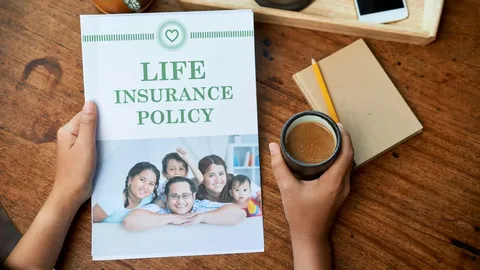
Term life insurance serves as a crucial financial tool, providing protection for a specified period, typically ranging from 10 to 30 years. It’s a popular choice due to its affordability and straightforward structure, offering a death benefit to beneficiaries if the insured individual passes away during the policy term.
Understanding Term Life Insurance Policies
Term life insurance policies are straightforward contracts between the insured and the insurer. They offer coverage for a predetermined period, with fixed premiums throughout the term. Unlike permanent life insurance, such as whole life or universal life, term life policies do not accumulate cash value.
What Happens When the Term Ends?
When the term of a life insurance policy expires, the coverage comes to an end. This means that if the insured individual outlives the policy term, they no longer have life insurance protection. At this point, beneficiaries would not receive a death benefit if the insured were to pass away.
Scenario: Outliving the Term Life Insurance
In the event of outliving a term life insurance policy, beneficiaries would not receive any death benefit upon the insured’s passing. This can potentially leave dependents financially vulnerable, especially if they were relying on the insurance payout for income replacement, mortgage payments, or other financial obligations.
Exploring Options After Term Expiry
Fortunately, individuals have options when their term life insurance policy is set to expire. One option is to renew the policy for another term, although premiums may increase based on age and health status. Another possibility is to convert the term policy into a permanent life insurance policy, such as whole life or universal life insurance.
Factors to Consider in Decision Making
Several factors influence the decision to renew or convert a term life insurance policy. Age and health status play a significant role, as premiums for renewal or conversion may be higher for older individuals or those with health issues. Additionally, financial circumstances and long-term insurance needs should be carefully evaluated.
Renewal vs. Conversion: Pros and Cons
Renewing a term life insurance policy typically involves paying higher premiums for another term of coverage. While this provides continued protection, it may become cost-prohibitive as individuals age. On the other hand, converting a term policy to permanent life insurance offers lifelong coverage and the potential to build cash value, but premiums are generally higher.
Importance of Planning Ahead
Planning ahead is essential when it comes to life insurance. As the term of a policy approaches its end, it’s crucial to reassess coverage needs and explore available options. Seeking guidance from a financial advisor or insurance professional can help individuals make informed decisions about renewing, converting, or purchasing alternative coverage.
Alternatives to Term Life Insurance
For those seeking lifelong coverage or investment opportunities, alternatives to term life insurance include whole life insurance and universal life insurance. These policies offer permanent protection and may accumulate cash value over time, providing additional financial benefits beyond the death benefit.
Unique FAQs
Can I renew my term life insurance policy after it expires?
Yes, many insurance companies offer the option to renew a term life policy for another term, although premiums may increase.
What happens if I don’t renew or convert my term life insurance policy?
If you choose not to renew or convert your term policy, coverage will expire, and beneficiaries will not receive a death benefit if you pass away.
Is it possible to convert my term life insurance policy into permanent life insurance?
Yes, most term life insurance policies offer the option to convert to permanent life insurance, such as whole life or universal life, typically within a specified timeframe.
How do I determine whether to renew or convert my term life insurance policy?
Factors such as age, health status, financial circumstances, and long-term insurance needs should be considered when deciding between renewal and conversion.
Are there alternatives to term life insurance for lifelong coverage?
Yes, whole life insurance and universal life insurance policies offer permanent protection and may include cash value accumulation features, providing additional financial benefits.
Conclusion
Outliving a term life insurance policy raises important considerations for individuals and their families. Understanding the options available upon term expiry, such as renewal or conversion, can help ensure continued financial security. By planning ahead and seeking professional guidance, individuals can make informed decisions to protect their loved ones’ future.